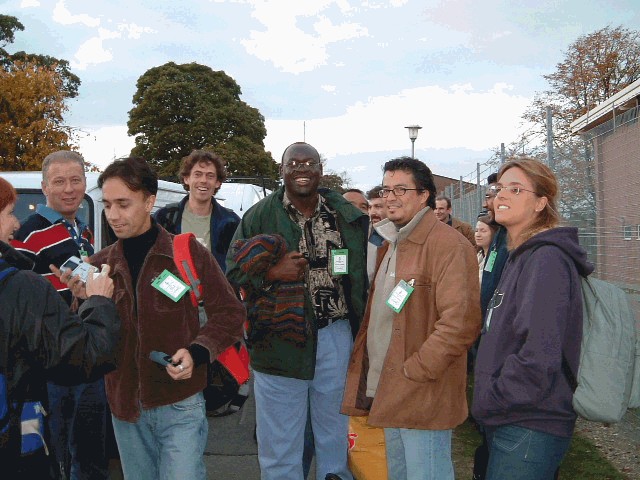歴史の中で「共存」試される 保阪正康・ノンフィクション作家

天皇陛下の今回のおことばは、平成の「玉音放送」「人間宣言」と呼べる歴史的意義を持っている。憲法で言う「内閣の助言と承認」を必要とするレベルの発言だが5、6年前から天皇陛下が意向を示してきたにもかかわらず、政治が役割を果たさないので、「個人」として、「国民の理解を得られることを、切に願っています」との重く微妙な表現で、覚悟を持って国民に直接呼び掛けられた。有識者会議はこれに応えるべく、予定調和・結論ありきではなく、抜本的な問題に踏み込む必要がある。
「人間宣言」のゆえんは皇室典範の抱える問題による。戦前、天皇制は大日本帝国憲法と旧皇室典範の二つで形作られていた。戦後、新憲法は制定されたが、皇室典範は旧態依然の形を受け継いでいる。私たちは市民的権利を享有する社会に生きているが、天皇はそうでなく、現制度には無理がある。無理を身をもって知るのは、天皇陛下ご自身だ。少なくとも、皇位継承については、意思を表明する権利が天皇にあるのではないか。「政治的」なあらゆるご発言を認めろ、というのでもない。また、その通り決定するかも別の段階の話だ。
「一代限りの特別立法で乗り切る」といった予定調和が政府側から見える。おことばという現実を突きつけられ、姑息な手段を言っている感がある。摂政についても安易だ。おことばで置くことを事実上否定した部分は、昭和天皇が大正天皇の摂政を務め、天皇陛下自身も臨時代行を務めたことから、困難を血肉として理解しているからではないか。昭和天皇には、結果的に大正天皇の位を奪った形になってしまったというトラウマがあったようだ。
結局、問題は天皇をどう考えるかに行き着く。かつて日本は性急な近代化のため、権威権力一体の仕組みを作ったが破綻した。権力は臣下に負託され、天皇の名において振るわれたが、戦争時など、必要な報告すら昭和天皇にされてなく、ウソもついている。
各種世論調査では、生前退位について8〜9割が「賛成」という数字になっている。こんな数字が出るのは「お気の毒」などといった感情論的なレベルで、本質的に問題が考えられていないからだろう。例えば何代か後の天皇によって憲法から逸脱するような「政治的」な発言が行われる事態を仮定すれば、今回の「おことば」が引き合いに出されるのではないか。そうした重要な問題をはらんでいる。有識者会議では感情論に流されず、天皇制の土台そのもののあり方を論じ、問題意識を国民に広く伝えるような議論をしてほしい。
天皇制は、権力と権威を分ける、抽象化された存在が市民社会のバランスを保つといった、私たちが紡いできた「知恵」の中に存在する。皇室の高齢化、天皇の後継者の減少という現代の課題の中で、私たちは天皇制といかに「共存」するか。歴史の中で試されている。有識者会議のメンバーは、そのことを自覚しているだろうか。個々人は天皇観、天皇制をどう自身の中で抱えるか、意見を明らかにし、ぶつけあって、より良い方向を模索しなければならない。【聞き手・最上聡】
象徴天皇制とは何か 議論を 河西秀哉・神戸女学院大准教授

有識者会議では象徴天皇制とはどうあるべきかを考えたうえで、生前退位の問題を議論してほしい。日本人にとって象徴天皇とは何なのか。本来、象徴天皇は社会の変化に応じて変わっていくべきだ。しかし、戦前から戦後にかけて象徴天皇の中身を議論しないまま、天皇制は存続してきた。象徴天皇という概念は難しいうえ、憲法でも明確に定義されなかったため、天皇自身が象徴とはどうあるべきかを模索してきた。
天皇は国事行為だけではなく、被災地にお見舞いに行ったり、戦跡で戦没者の慰霊をしたり、公的行為を増やしてきた。平成の象徴天皇像は社会のあり方に非常にマッチした。東日本大震災の被災地へのお見舞いでは、手を握り、苦楽を共にしてくれる天皇によって、被災者の気持ちは和らいだ。これこそが、象徴的な出来事だ。
私たちは象徴天皇とは何なのかを考えてこなかった。そこで今回、天皇は「国民も考えてほしい」と言われたのだと思う。国民は象徴天皇に「こうしてほしい」という意思は持っていなかった。これまで天皇は公的行為をある程度自分の裁量で決めることができたが、今後は国民の意思を反映した法律によって、限度を決めていいと思う。今まで象徴天皇の中身を議論しないままにきたので、象徴天皇制とは何なのか、象徴天皇にどういう仕事をしてほしいかについて検討したうえで、生前退位について決定すべきだ。
生前退位を認める場合は皇室典範を改正すべきだと思う。世論調査を見ると、ほとんどの国民が生前退位を認めている。これを踏まえ安倍政権は現在の天皇に限った生前退位を認める特別立法で対応しようとしている。しかし、象徴天皇制を長く続けるのであれば、男系だけでは維持できないので、女性天皇、女系天皇を認めざるを得ない。女性天皇容認などを含めた皇室典範の改正は、小泉内閣の時にも検討されたが、実現しなかった。安倍政権は生前退位を認める特別立法、皇室典範改正という2段階方式を装いながら、特別立法だけでガス抜きをするつもりではないか。女性天皇容認などの皇室典範改正はする気がないまま、議論だけを続けて終わるのではないかと危惧する。
生前退位を認める場合、退位した天皇は公務をしないと決めた方がいいだろう。退位した天皇が、被災者のお見舞いに行ったり、言葉を発したりした場合、天皇よりも退位した天皇が尊敬を集めたりする可能性がある。そのようなことになれば、二重構造になってしまい、摂政を置いた時と同じような状況が生じてしまう恐れがある。
また、天皇が今回映像でおことばを発したことがいいのかどうか、今後検討する必要がある。天皇の意思によって政治が動かないようにしているのは、戦前の反省を踏まえている。天皇の生前退位を望むお気持ちに対し、政府はきちんと対応してこなかった。このような政治の不作為があったので、天皇がやむにやまれずにおことばを発したのではないか。しかし、そうだとしても、天皇の意思から政治が動くことには問題がある。【聞き手・南恵太】
皇室への尊敬持ち英知を 櫻井よしこ・ジャーナリスト

8月の天皇陛下の「おことば」の率直さに驚いた。陛下のご意思は宮内庁や政府を通して発表されるものと思っていたが、陛下ご自身がご自分のお考えと皇室のありようについての要望を国民に直接語りかけられた。そのことについて考えざるをえなかった。
国民の多くが両陛下に尊敬の念を抱いている。圧倒的多数がおことばの通りにして差しあげるべきだと答えたのはそうした尊敬の念の自然な発露だろう。
おことばに関して昭和天皇と比べるとどうか。昭和天皇は張作霖爆殺事件に関して田中義一内閣に怒りをぶつけて辞任を求めた。そのことを独白録の中で「若気の至りである」と回顧されている。その後は立憲君主としての矩(のり)を守ることに心を砕かれた。またご成婚後に四方の内親王が生まれた時、「養子の制度を認める可否」を元老にご下問なさった。男系男子に皇位を継承するという伝統的な皇室のあり方に心を配られたのだ。皇室のあり方をご自分の都合で変えてはいけないという思いが強かったのだと思う。そうした点で今上陛下のお気持ち表明について、考えさせられる点もある。今回の「おことば」については、国民の一人としてかなえて差しあげたいという思いと、長い歴史を引き継ぐ日本人の末裔(まつえい)の一人として先人たちが守ってきた伝統を守るのも大切だという、相対する感情を抱いている。
今回、政府はこの難しい問題への対応として有識者会議を始める。国の基となる皇室のあり方に関わることだから慎重に深く考えるべきだ。大日本帝国憲法は伊藤博文たちが苦労して研究し、1889(明治22)年に公布された。皇室典範もこの時にできた。日本の求心力である皇室のあり方を変えるには、深い知識と何よりも皇室への尊敬と愛情を持った人々の英知が不可欠だ。今会議のメンバーには皇室の専門家がいるのだろうか。それぞれの分野で立派な業績のある方ばかりであろうが、皇室の専門性となると心もとない。
2005年の小泉政権の有識者会議は意図的に女系天皇論の方たちを中心に据えて、結論ありきだったように感じた。今回は特定の意図は感じないが、皇室の専門家がいないのではないか。安倍晋三首相は「幅広い意見を聞く」と言っており、多くの人がヒアリングに呼ばれるだろうが、皇室や古代からの歴史の専門家を必ず参加させ、その知恵を重視すべきだと思う。
譲位(生前退位)実現に皇室典範の改正が必要か否かも慎重に考えたい。退位後の称号やお住まい、後に続く皇位継承者に関する事案でも、課題は多いが、これらを限られた時間で全部扱おうとすれば、不十分な議論で終わりかねない。皇室典範を改正するのなら、皇位継承の安定化のために、皇族を増やしていく具体策の提示まで念頭に置く考え方が後々のためにはいい。大河の流れのような皇室の存在は大切に守りたい。
戦後日本の仕組みは憲法も含めて大幅な見直しが必要だが、その際は賢く深く考えた対処が大事だ。きちんとしたところまで時間をかけて英知を結集するのが国家の責任だ。【聞き手・森忠彦】
初会合は17日
「天皇の公務の負担軽減等に関する有識者会議」のメンバーは、今井敬・経団連名誉会長▽小幡(おばた)純子・上智大法科大学院教授▽清家(せいけ)篤・慶応義塾長▽御厨(みくりや)貴・東京大名誉教授▽宮崎緑・千葉商科大教授▽山内昌之・東京大名誉教授。皇室制度をめぐっては、小泉純一郎内閣当時、首相の私的諮問機関「皇室典範に関する有識者会議」が設置され、2005年11月にまとめた報告書は、女性・女系天皇の容認を提言した。
■人物略歴
ほさか・まさやす 1939年、札幌市生まれ。同志社大文学部卒。2004年、個人誌「昭和史講座」などの昭和史研究で菊池寛賞。「あの戦争は何だったのか」「安倍首相の『歴史観』を問う」など著書多数。
かわにし・ひでや 1977年生まれ。名古屋大大学院博士後期課程修了。京都大助教などを経て、2014年から現職。専門は日本近現代史。著書に「『象徴天皇』の戦後史」「明仁天皇と戦後日本」など。







